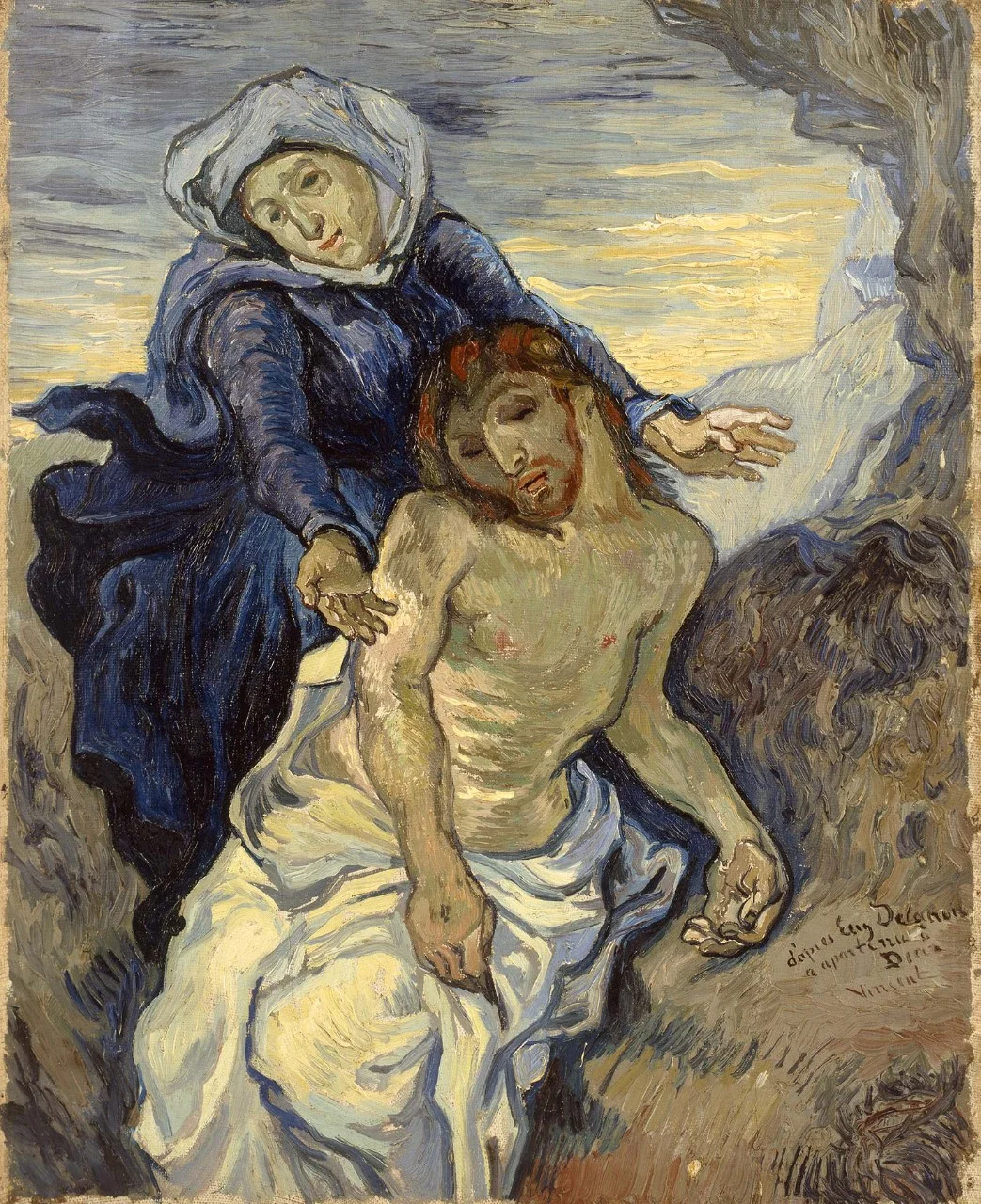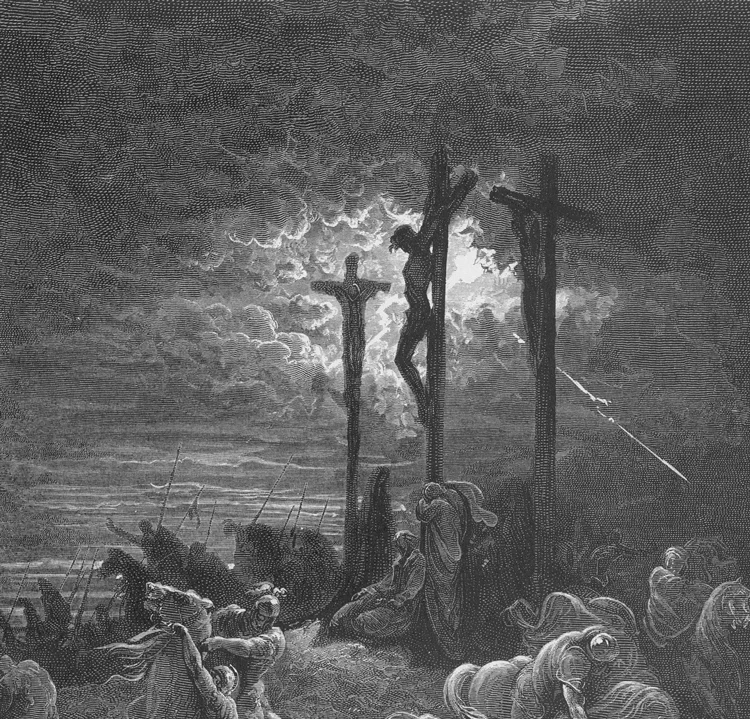God and Emotions series -- "God's Jealousy"
In this third instalment of our on-going series on God and Emotions, Fr Simon Cuff writes on God's jealousy. Essays on this theme will be published monthly.
‘It’s not fair.’ We are born with an innate of sense of fairness. There’s no way to annoy a child more than to frustrate this sense of fairness. We know jealousy is a sin. In the Old Testament, we’re instructed against jealousy: ‘Thou shalt not covet thy neighbour's house, thou shalt not covet thy neighbour's wife, nor his manservant, nor his maidservant, nor his ox, nor his ass, nor any thing that is thy neighbour’s.’ (Exod 20.17). Don’t be jealous.
And yet, our Old Testament also contains several difficult passages in which we read the opposite of God. Just verses before in Exodus we find: ‘I the LORD your God am a jealous God, visiting the iniquity of the fathers upon the children to the third and the fourth generation of those who hate me’ (Exod 20.5). We’re not told not to be jealous. And yet God is. It’s not fair.
What does it mean for God to be jealous? Is God as petulant as the child whose sense of fairness is violated, commanding one thing for us and doing quite a different thing himself? We could say that God is sovereign and free, if he wants to commend one course of action for us and take another himself, he’s free to do so.
Sure enough, but before committing ourselves to saying God can be arbitrary if he likes, we should do first what every piece of Christian thinking demands: to begin and end with Christ. He is the Alpha and the Omega after all. God is free, but what that freedom looks like we only know through Christ. Christ’s is God’s free speech.
What does God say to us in Christ? If God is jealous of us, his becoming one of us in Christ is a funny way of showing it. The Incarnation reminds us that whatever images and idols we make of god are not God. He comes to us, not the other way round. In fact, the Incarnation gives us to the startling realisation that most of the images we have of God are idols, of our own or others’ devising, which much constantly be checked against the true image of God shown to us in Christ.
We underestimate how difficult this task of making sure our images and ideas of God are being transformed and challenged by Christ is at our peril. For one thing, it feels dizzying and uncomfortable, and it’s natural to respond by clinging ever-more tightly to the image or idol of a god that has given us comfort or security in the past. Even here, Christ remains challenging us to ever-sharpen our images and understanding of him, bringing them ever-closer to the reality which is God. There’s a good reason to think this task will never be complete in our earthly lives. The idolatrous cobwebs on our understanding of God will only be fully blown away in eternity, when we see God face to face.
Given all this, what does it mean for God to be jealous? It’s no coincidence that references to God’s jealousy occur in discussion of the very idols we tend to make for ourselves. ‘You shall not make for yourself an idol, whether in the form of anything that is in heaven above, or that is on the earth beneath, or that is in the water under the earth. You shall not bow down to them or worship them’ (Exod 20.4).
Domenico Fatti. The Sacrifice of Elijah Before the Priests of Baal.
What is God jealous of? Not us, but those idols and images of gods and even God that we make for ourselves. And not just for ourselves but others too. Humankind’s ability to make idols is so pervasive that we’re reminded that the consequences of such idol-making are huge. Not only do we worship the idols of our making, we’re all too ready to worship the idols of those devised by others too. Every sort of idolatry is contagious, which is why it’s such a serious matter.
We might think idolatry is a minority interest or a concern of the ancient past. Very few of us have made an image of a little deity to put on our desk or have a sacred pole in our garden or window box and whom we worship in the place of God. Idolatry runs deeper than this. How many of us begin our day by rushing to our phones or computers? How many of our lives are ordered not around the liturgical year but the fixtures calendar? How many of us truly and constantly put God at the centre of our focus and build our life from that centre? How many of the things that we have and do every day are actually what we build our lives on?
We might still ask: why is God, the creator of the universe, of all that is, jealous of these trifling and meaningless idols? Why be jealous of false deities or mobile phones when you’ve rather bigger things to contemplate as the all-powerful and all-knowing?
God isn’t jealous of us, and he isn’t really jealous of idols either. God is jealous for us. He knows how easily we worship idols of our own devising and he knows how costly such worship can be. He knows that lives lived in relationship with him, lives lived with God truly at their centre, are the only lives which are really true and full and free. He knows this because he created us, and because he knows the abundance of that life - life in all its fullness (John 10.10).
God is jealous for us because he wants us to live that life today. And he isn’t just jealous for some of us, he doesn’t just want some people to live that life today - just Jews or just Greeks or just men or just women - he wants us all to live that life even now (1 Tim 2.4).
God is jealous, because he wants us to put him at the centre of our lives. He wants us to do that for which we were created, to live our lives in relationship with him - lives shot through with that self-emptying love which is our very God himself: Father, Son, and Holy Spirit. He wants us to empty ourselves of the false images and idols of own devising, and take up our true selves - the lives he longs us to live.
Is this fair? Not a bit. God’s jealousy, like’s God’s love, is utterly indiscriminate, utterly unearned by anything we can do, utterly Gracious, and utterly gift. Fair? No. But worth being jealous of? Absolutely. Those of us not living that life as fully as we might - which is all of us - should cultivate a little bit more divine jealousy, and be jealous of those living more of that life than us today, jealous for that life in all its fullness, which only love brings.






